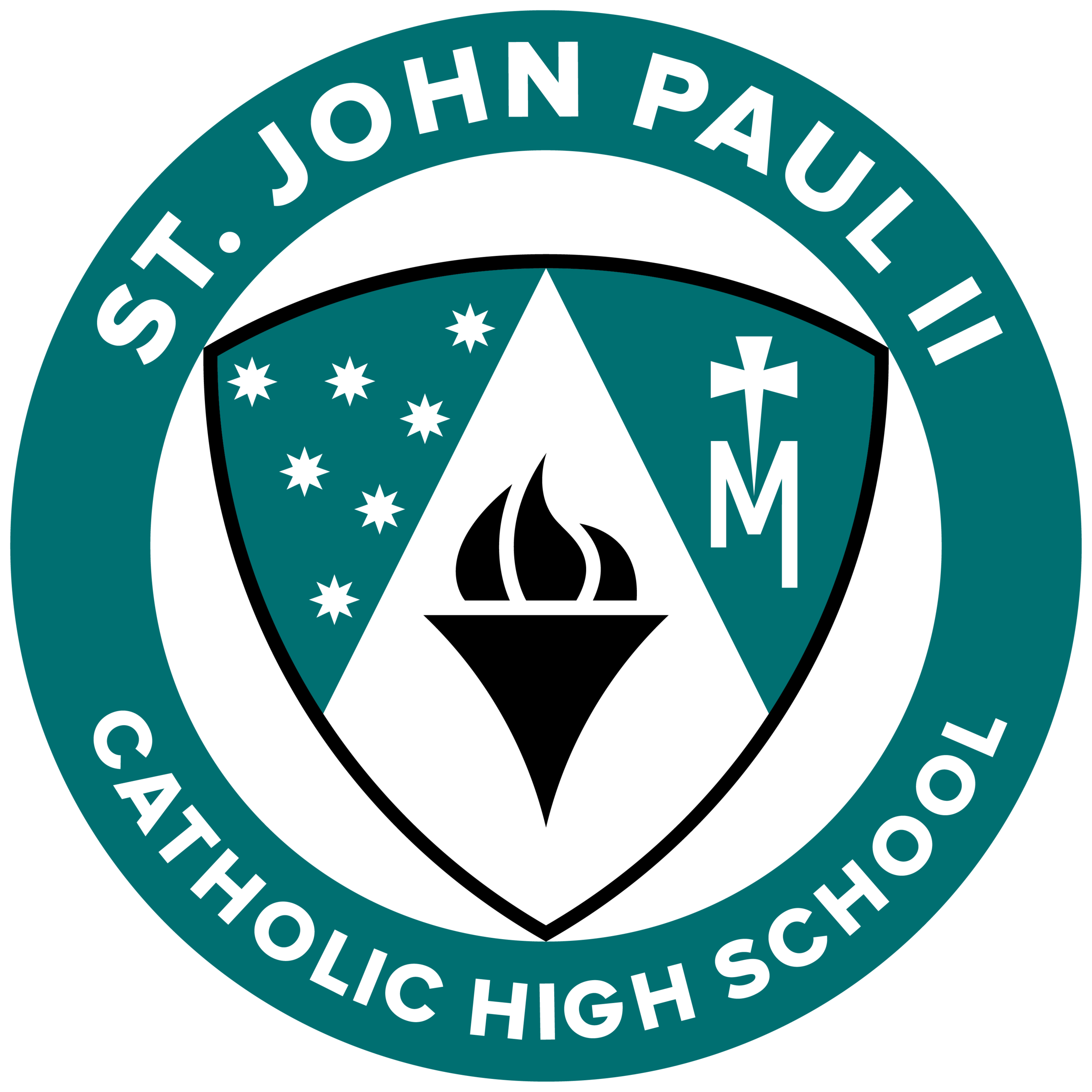Science
The Science program at Saint John Paul II Catholic High School provides students with a method of acquiring, organizing, analyzing, and explaining scientific data. The purpose of the program is to foster in students knowledge of and respect for the order and beauty of creation, an awareness of the forces that shape our physical and biological world, and a sense of personal responsibility for the direction science and technology will take in the course of their lives.
Science Courses
Biology (H)
Chemistry (H)
Physics (H)
Anatomy & Physiology
Environmental Science
AP Chemistry
AP Physics
““For science develops best when its concepts and conclusions are integrated into the broader human culture and its concerns for ultimate meaning and value.””
Science Department Faculty
Mr. Badley
B.A. Thomas Aquinas College
Ms. Barry
B.A. Arizona State University
Ms. Martin
Department Chair
B.S. University of Toronto
M.Ed. Northern Arizona University
TEXTS & RECOMMENDED READINGS
9th Biology
Biology, Miller & Levine or other TBD
Chance or Purpose? Creation, Evolution, and a Rational Faith, Shoenborn
Souvenirs, Fabre
Lazzaro Spallanzani (1729-1799) Italian Catholic priest who was the first to come with the theory of animal echolocation (and is one of the scientists considered to be the "Father of Modern Biology").
10th (AP) Chemistry
Modern Chemistry, Holt McDougall or other TBD
“The Double Helix: A personal account of the Discovery of the Structure of DNA” by James D. Watson
Elements of Chemistry, Antoine Lavoisier (1743-1794) French Catholic chemist, considered the "Father of Modern Chemistry," coming up with the first table of elements, inventing the terms "oxygen" and "hydrogen", who theorized that mass always stays the same, and defined the unit that was later termed the "kilogram".
11th (AP) Physics
Text TBD
Writings of Marie Curie
Robert Grosseteste (c. 1175-1253) English Catholic Bishop who developed mathematical physics, put forward the first known wave theory of light, and advocated the use of controlled experiments (which led to the modern scientific method).
Pope John Paul II Galileo Galilei and “Address to the Pontifical Academy of Science"




